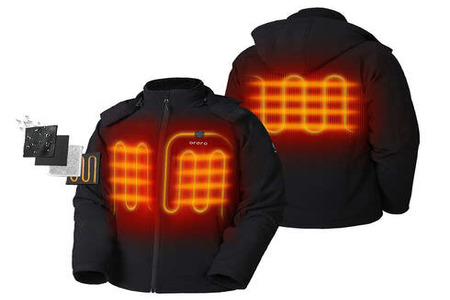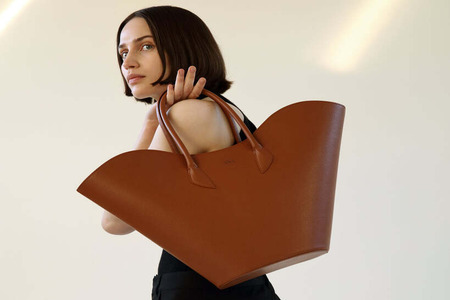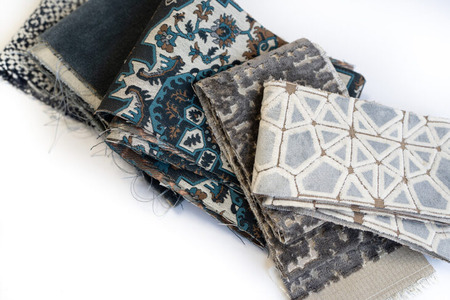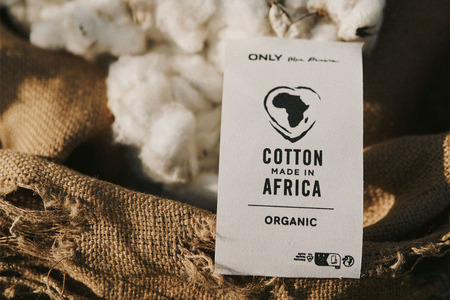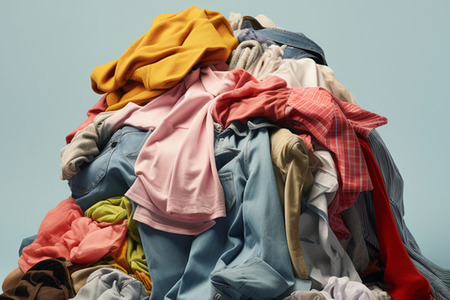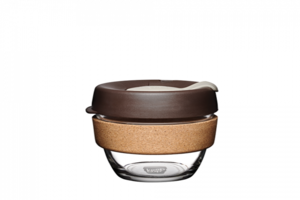
The sustainable purchaser
YarnsandFibers News Bureau 2019-02-25 15:15:00 – IrelandFast fashion - If you’re asked to name high-emitting industries, one important contributor and very mandatory product might not quickly come to mind: clothing. The fashion industry contributes roughly 10 per cent of all global greenhouse gas emissions because of its energy-intensive production and long-supply chain, according to the United Nations Framework Convention on Climate Change (UNFCCC). Fast fashion, inexpensive clothing produced quickly at a mass-market level, is a particularly guilty culprit.
It’s disposal poses an environmental threat, even after its production. According to Carrie Ann Moran, the Fashion and Eco Store at the Rediscovery Centre programme manager at Ballymun’s Rediscovery Centre, textile waste has become a major issue in Ireland. And due to the high-percentage plastic-based make-up of clothing, the material, according to Moran, “will stay there for the same amount of time as a plastic bottle, but that will differ because of the landfill environmentâ€.
So for the environment, our fashion choices, no matter what styles or fast fashion trends you follow it can bear a huge cost. How can we go about reducing our impact in a cost-effective way?
One pocketbook-friendly and community-serving way to do so is by shopping at secondhand clothing stores. Ireland certainly has no shortage of them, with branches of Oxfam and St Vincent de Paul second-hand charity shops found nationwide. Or there’s the Fashion and Eco Store at the Rediscovery Centre for Dublin-based shoppers, a social enterprise that provides training to the long-term unemployed, produces redesigned and repurposed clothing, and each handmade piece is valued by price comparison on the market.
The fashion industry contributes roughly 10 per cent of all global greenhouse gas emissions because of its energy-intensive production and long-supply chain. You can also bring clothes you no longer wear to a consignment shop, which provides a place for secondhand items to be sold at a price determined by the store itself. If the item sells, both the owner and the consignment store split the profit, and an item that would have sat in a landfill is once more in use.
One such system is Dublin’s Siopaella, with four different shop locations in the city, reselling and exchanging products from designer bags to premium high street fashion to vintage items. Siopaella head-buyer and chief executive Ella de Guzman advises shoppers to think carefully about their purchases. “If you’re thinking about global warming and if you’re going to have kids, you really need to start thinking about how you are shopping. Make sure that if you do buy a fast fashion T-shirt, you’re willing to take care of it and mind it for the rest of its life, because a store like me is not going to buy it off you.â€
Not only does sustainable fashion therefore create economic and environmental savings, it also allows you stand out from the crowd, Carrie Ann Moran says, as, “you know that the pieces are unique, because not everyone on the high street is going to be wearing one.â€
Next step - Each one of our ecological footprints is like a mosaic of sorts, with a tile varying in size from almost every realm of consumption. Switching to options at the till and barista counter that are environmentally friendly has become notably cheaper over the past years. If consumer behaviour continues to bend towards sustainability, it has a strong chance of becoming more affordable and widespread outside of urban pockets. And while some choices might bear a greater up-front cost than disposable alternatives, the long-term savings for both your wallet and the planet seem like a fair price to pay.
Packaging-free -Long before David Attenborough highlighted the detrimental impacts of plastic pollution on our oceans, plastic packaging has caused substantial environmental and economic consequences. A 2018 UN report found that if our global current consumption habits and waste management practices continue as is, by 2050 there will be roughly 12 billion tonnes of plastic litter in landfills and the environment.
The problems plastic brings are multifold for both humans and the environment, and the report goes on to say that studies suggest, “the total economic damage to the world’s marine ecosystem caused by plastic amounts to at least $13 billion every yearâ€. Therefore, reducing our plastic use is good for both the environment and national spending. But what about for our bank account?
Zero-waste consumer options are cropping up across different industries in Ireland, particularly among grocers. Waste-free food shopping options have appeared both online, with sites such as Minimal Waste Grocery, and in-store.
Noms, an organic food shop based in Phibsboro in Dublin, uses sustainable packaging and goes package-free wherever possible. While its organic produce is more expensive than its non-organic counterparts, package-free purchases can reap pocketbook benefits in certain instances.
“Everything is loose, so you only have to buy what you need,†Ciaran Smyth of Noms says, recalling an experience whereby, “someone came in with a recipe written out looking for two tablespoons of cacao and coconut†and as Noms has its own weighing station, it was possible to measure out and purchase the exact amount. Bought in a larger load, such as an organic 200g package of raw cacao from Tesco, the purchase of one ingredient would work out to be €7.49.
British cosmetics retailer Lush is addressing the plight of excess packaging with their #LushNaked packaging-free line, providing customers with package-free products in Dublin and Cork.
At face value, purchasing a 55g Lush shampoo bar is more expensive than a standard-sized bottled alternative, such as Herbal Essences or Head & Shoulders. But, according to Lush, the bars give purchasers between “80 and 100 washesâ€, which, “does the job of three 250g bottles of liquid shampooâ€. That extra bit of money at the till could lead to long-term savings, as well as lessening your own plastic consumption.
The Keep Cup -Alongside packaging, plastic features as a key component of disposable takeaway coffee cups, as it’s combined with paper. Since the two elements are often difficult to parse apart, recycling them has proven to be incredibly difficult. The Conscious Cup Campaign, which aims to increase the use of reusable cups in Ireland, estimates that as a nation, we dispose of over 200 million non-recyclable cups each year. Combined with other channels of plastic consumption, the average Irish person now generates 61kg of plastic per year, which is roughly double the EU average.
Many big-name, nationwide coffee chains offer financial rewards to reusable cup users thanks to sustainable company efforts and campaigns.A switch to a reusable alternative, like a Keep Cup, as a container for your morning, afternoon or I-just-need-to-push-through-this-all-nighter coffee initially sounds like quite an investment. Ready-to-use Keep Cups vary in size and design, and range in price from €9.50 to €29 online.
But, many big-name, nationwide coffee chains offer financial rewards to reusable cup users thanks to sustainable company efforts and campaigns like Conscious Cup, which is supported by Voice of Irish Concern for the Environment (Voice) and the Eastern Midlands Regional Waste Management Office.
Starbucks offers a 35 cent discount on a beverage bought with a consumer’s own mug, and Butlers Chocolate Cafe will offer a 10 cent discount to a customer using a reusable cup. Cafe Nero and Insomnia offer in-store benefits through Caffe Nero’s loyalty card and Insomnia’s Treats account. And in the long-run, if you buy a €22 Keep Cup, after 63 coffee purchases at Starbucks, your cup has paid for itself and you’ve substantially lowered your own personal plastic pollution.
You might say: “Hey, I’m not ready to make a reusable cup switch, and surely the relatively-new-on-the-market compostable coffee cups do the job?†Well, no. Not quite. While Insomnia introduced compostable bins into their stores in June 2018, there is still quite a way to go regarding their waste treatment both within shops and on streetside bins.
“Compostable cups are not compostable on the ground,†says Voice co-ordinator Mindy O’Brien. “They need specific industrial treatment to get enough heat to break down. If you throw a compostable cup on the ground, it’s just going to sit there. It’s not like an apple core.â€
Trying to live sustainably can sometimes feel like an uphill trek without one clear-cut path to the mountaintop. Often a product that might be environmentally championed for one reason is problematic for another. Almond milk production is the lowest emitter of the plant-based milk family, but it does require the most water to make, according to an article in Science. Compostable coffee cups might seem like an obvious more eco-friendly alternative than its paper-and-plastic predecessor, but only if disposed of properly. And, of course, there is always the question – how much is this going to cost?
Fortunately, sustainable consumer choices have become increasingly more affordable and accessible. While diet choices and their consequences on the environment and our health have been brought to the forefront with last month’s EAT-Lancet report which suggested people need to dramatically reduce their meat and dairy intake, there are other choices you can make at point of purchase that are considered to be wallet and planet friendly, as well as relatively straightforward.
Courtesy:The Irish Times
Market Intelligence
Ask for free sample Report

experience
Customer Base
dedicated team
Countries Served Worldwide



